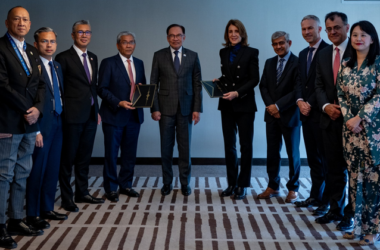Online fraud persists and spreads widely due to technology reliance, e-commerce growth, and internet anonymity. Scammers manipulate individuals, exploit vulnerabilities, and execute scams behind screens and fake identities.
Global reach hampers law enforcement, while evolving technology and hacking techniques enable continuous exploitation. Social media and phishing emails also contribute to its prevalence.
The Star reports that Deputy Communications and Digital Minister Teo Nie Ching asserts that many countries face a significant challenge with online fraud. Teo made this statement during her participation in the G2G Ministerial Roundtable: Scams And AI Governance, a side event held during the four-day Asia Tech x Singapore (ATxSG) event that concluded on Friday (9 June 2023).
ATxSG, organised by Singapore’s Infocomm Media Development Authority (IMDA) and Informa Tech, serves as a platform where technology intersects with society and the digital economy.
Teo stated that in order to effectively combat online fraud, it’s impractical for the government to act alone, as these frauds are orchestrated by highly sophisticated international syndicates. Therefore, the sharing of information becomes crucial for expediting action.
She further highlighted that the government is encountering challenges in securing cooperation from various platforms or Over-The-Top (OTT) providers, primarily tech giants.
She added that some OTTs are reluctant to engage in dialogue, while others attend meetings but fail to meet the required standards and regulations we seek to impose.
Recognising the difficulties of negotiating with OTTs as a single government, Teo proposed that joining forces with neighbouring ASEAN countries could enhance effectiveness in engaging with these platforms.
Teo expressed that many countries shared her sentiments and agreed with her views. She concluded by saying that she hope that at the ASEAN level, they can leverage this approach to ensure that all social media companies provide a secure platform for users.










